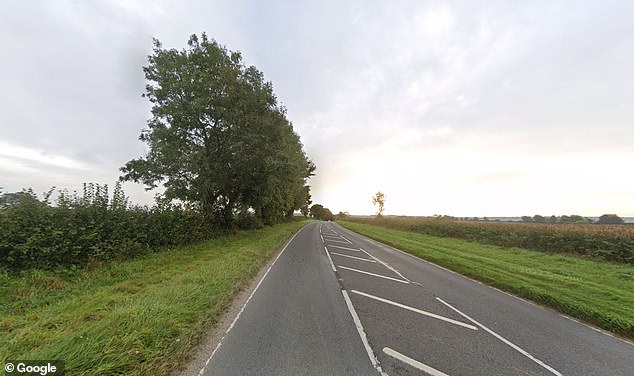Michael Buerk hit out at ‘white saviour’ criticism of the Live Aid concerts yesterday, branding the controversy ‘obscene’.
The veteran broadcaster – whose heart-rending reports on the Ethiopian famine in 1984 led to musicians Bob Geldof and Midge Ure organising the event – rejected accusations that the West was being ‘paternalistic’.
It came as the global charity fundraiser marked its 40th anniversary yesterday.
The BBC presenter told Radio 4’s Broadcasting House current affairs programme: ‘If you were one of the women picking through donkey dung trying to find some undigested seeds, if you were one of the children whose eyes were rotting through vitamin deficiency, if you were a guy… have you seen somebody dying from starvation? The body eats itself from inside.
‘If you’re one of those people, you’re not really that concerned about whether your saviour is white or black and I think it’s probably obscene this – or that the Guardian thinks we’re being paternalistic.
‘In that context, I have my own questions about development aid. I have my own questions about lots of other things.
‘But in this particular context, that single moment in history, I think it’s rather obscene that people should go around talking about white saviours. Any saviour in that context is very welcome indeed.’
The 79-year-old, who now presents Radio 4’s Moral Maze, added he thought the wave of compassion generated by his reports on the BBC’s Ten O’Clock News, now known as BBC News At Ten, was no longer possible.
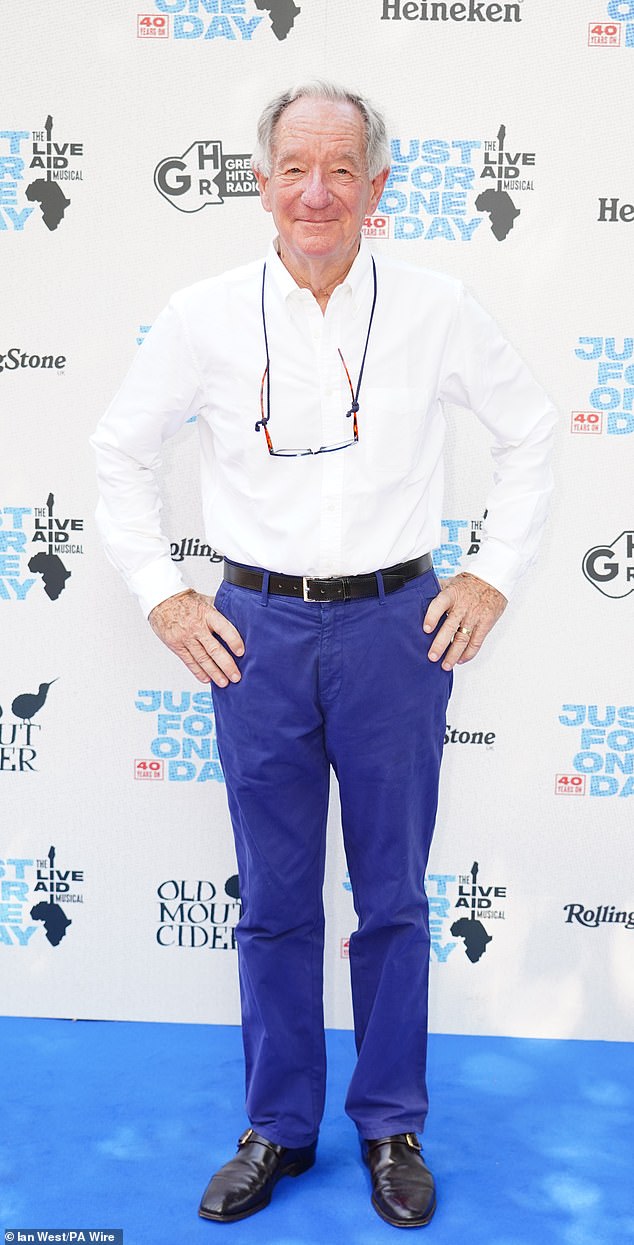
Michael Buerk (pictured), 79, hit out at ‘white saviour’ criticism of the Live Aid concerts yesterday, branding the controversy ‘obscene’. Pictured: Mr Buerk at the 40th Anniversary Gala for Live Aid
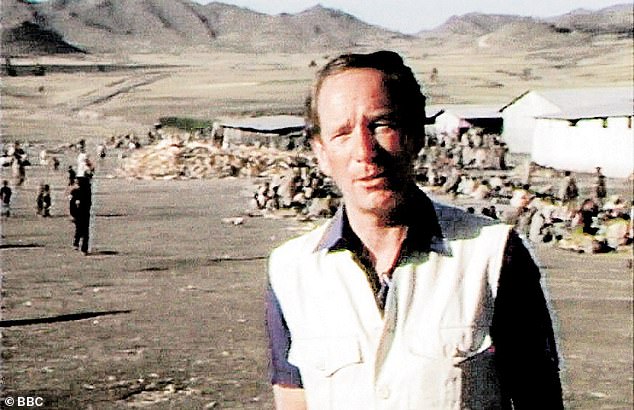
The veteran broadcaster – whose heart-rending reports on the Ethiopian famine in 1984 (pictured) led to musicians Bob Geldof and Midge Ure organising the event – rejected accusations that the West was being ‘paternalistic’
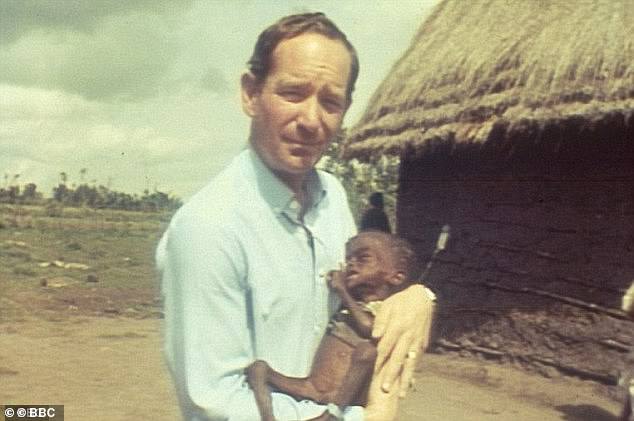
The BBC presenter told Radio 4’s Broadcasting House current affairs programme: ‘It’s rather obscene that people should go around talking about white saviours. Any saviour in that context is very welcome indeed.’ Pictured: Mr Buerk while reporting in Ethiopia
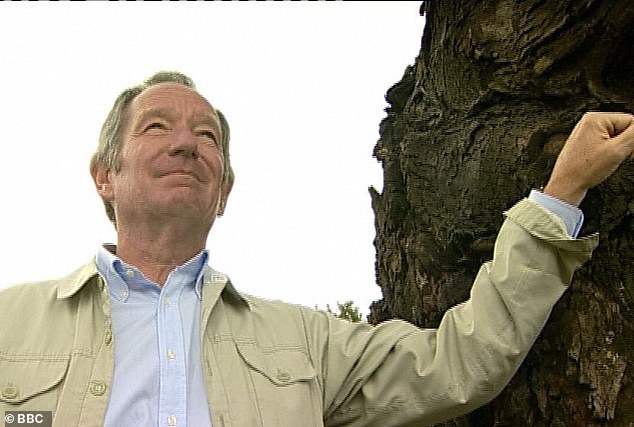
The 79-year-old, who now presents Radio 4’s Moral Maze, added he thought the wave of compassion generated by his reports, on the then BBC Ten O’Clock News, was no longer possible to achieve today. Pictured: Mr Buerk while reporting in Ethiopia
‘First of all, the reports on the BBC that reached the major news programmes reached almost everybody,’ he said.
‘There were ten million audiences for the main evening news and fewer distractions. You know, people weren’t on their phones all the time.
‘And also, I think we live in a more selfish, more cynical and more stupid world.’
Buerk, who didn’t see the Live Aid concerts broadcast from the UK and US simultaneously in July 1985 as he was working in South Africa which didn’t air them, admitted he had misgivings when he ‘first heard what Geldof was up to’.
‘I thought what are these prancing stars, for goodness’ sake? Pirouetting around, attention-seeking and virtue signalling on the backs of thousands and thousands of suffering people.
‘But now I take the opposite view about Geldof and what happened then.’
Live Aid, which was seen by about 1.5 billion people in more than 150 countries, together with the Band Aid single ‘Do They Know It’s Christmas?’ which has sold millions of copies, are estimated to have raised about £150 million in total for famine relief.
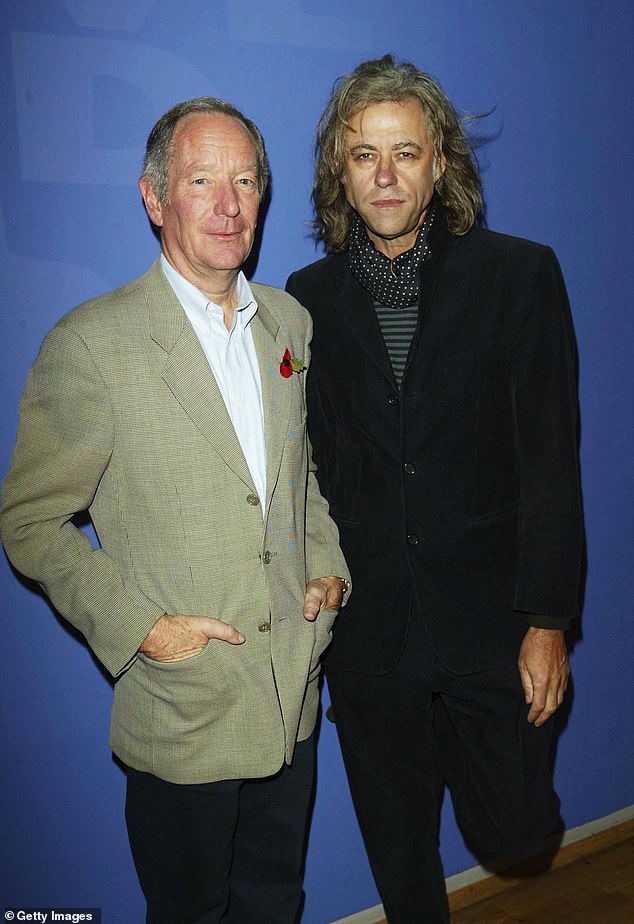
It came as the global charity fundraiser marked its 40th anniversary yesterday. Pictured: Mr Buerk with musician Sir Bob Geldoff arrive at Premiere screening of four-disc DVD featuring 10 hours of footage from ‘Live Aid’ at the Odeon Kensington on November 7, 2004
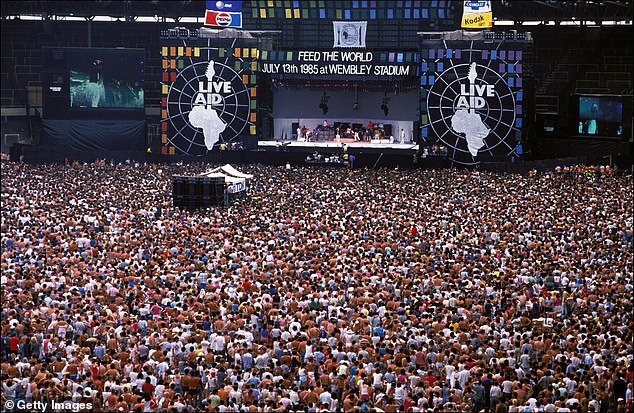
Live Aid, which was seen by about 1.5billion people in more than 150 countries, helped in raising around £150 million for famine relief. But since then some have questioned the symbolism of white people in the West coming to the rescue of a helpless and impoverished Africa
But they have come under fire in recent years, as some questioned the symbolism of white people in developed nations coming the rescue of a helpless and impoverished Africa.
Stars including Ed Sheeran have joined the backlash, with the singer last year saying he would have ‘respectfully declined the use of my vocals’ had he known they would appear on Band Aid 40, which combined elements of previous versions of the single.
Earlier this month, Irishman Geldof – who was granted an honorary knighthood in 1986 for his charity work in Africa – dismissed the white saviour storm as ‘nonsense’.
And last year, he described a critical comment from the Guardian – which stated some viewed Live Aid as reinforcing ‘a patronising image of Africa as a continent desperate for, and dependent on, western aid’ – as ‘the greatest load of b****cks ever’.
He added: ‘If there was a famine in Italy and someone reacts and they’re white, are they a white saviour? Are the only people allowed to react to an African famine black?’
Mail photographer Murray Sanders’ incredible unseen photographs of Live Aid are featured in a new book, Live Aid Relived. Order a copy at
Mail photographer Murray Sanders’ incredible unseen photographs of Live Aid are featured in a new book, Live Aid Relived. Order a copy at music2you.co.uk/liveaid


